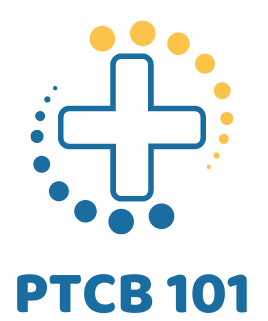Thinking about how to become a pharmacy technician in Montana? You’ve found the right guide.
- Understand education requirements: Know what qualifications you need.
- Explore certification steps: Learn how to get certified.
- Find job-seeking tips: Discover how to land your first job.
Embark on your new career by following these steps on how to become a pharmacy technician in Montana.
- Understanding the Role of a Pharmacy Technician
- Educational Requirements
- Choosing the Right Pharmacy Technician Program
- Certification and Licensure Steps
- Finding the Right Certification Program
- Externship and Practical Experience
- Job Search Tips for Pharmacy Technicians in Montana
- Continuing Education and Career Advancement
- Salary Expectations and Job Outlook in Montana
- Working Specifics and Employer Expectations
- Looking for Pharmacy Technician Information On States Bordering Montana?
- Conclusion
Understanding the Role of a Pharmacy Technician
Pharmacy technicians play an indispensable role within Montana’s healthcare system. They assist pharmacists by preparing medications, ensuring accurate labeling, and handling prescriptions. Their responsibilities also include managing inventory, verifying patient information, and offering customer service.
Key Responsibilities
- Preparing medications: Pharmacy technicians measure, mix, and label medications accurately.
- Assisting customers: They provide information on medications and assist with insurance claims.
- Maintaining records: Keeping meticulous records of patient profiles and inventory is critical.
- Supporting pharmacists: They ensure the smooth operation of pharmacy tasks under a pharmacist’s supervision.
These functions underscore the importance of meticulousness, clear communication, and a robust understanding of pharmaceuticals.
Educational Requirements
High School Coursework
To start your journey as a pharmacy technician in Montana, begin with a solid foundation in high school. Essential coursework includes:
- Mathematics: Develop your ability to compute accurate medication dosages.
- Chemistry and Biology: Gain a basic understanding of the interactions and effects of various substances.
- Health Sciences: Take courses that offer an overview of medical terminology and healthcare practices.
Skills Development
Focus on developing skills that are crucial for this profession:
- Attention to detail: Accuracy in medication preparation and record-keeping.
- Communication: Clear and effective interaction with patients and healthcare professionals.
- Organization: Efficiently manage tasks and workflow within the pharmacy setting.
By honing these skills early, you’ll be well-prepared for more advanced training.
Choosing the Right Pharmacy Technician Program
Accreditation and Program Options
Selecting an accredited program is a fundamental step toward becoming a pharmacy technician in Montana. Notable programs include Missoula College and Great Falls College MSU, both of which offer comprehensive training.
Important Considerations
When choosing a program, reflect on:
- Accreditation: Ensure the program is recognized by the American Society of Health-System Pharmacists (ASHP).
- Program Length and Costs: Confirm the program duration and tuition fees align with your plans and budget.
- Hands-On Training: Look for programs that include externships or clinical rotations for real-world experience.
Benefits of Accreditation
Enrolling in an accredited program ensures:
- Quality Education: Accredited programs meet industry standards and provide up-to-date knowledge and skills.
- Certification Readiness: These programs prepare you thoroughly for certification exams.
- Employment Prospects: Graduates from accredited programs are often more attractive to potential employers.
By carefully evaluating these factors, you can select a program that sets you on the path to a rewarding career.
Certification and Licensure Steps
Certification Exams
Becoming a certified pharmacy technician is a prerequisite for licensure in Montana. You’ll need to pass one of the following:
- Pharmacy Technician Certification Exam (PTCE): Administered by the Pharmacy Technician Certification Board (PTCB).
- Exam for the Certification of Pharmacy Technicians (ExCPT): Offered by the National Healthcareer Association (NHA).
Application Process
Once certified, you’ll apply for licensure through the Montana Board of Pharmacy. The process involves:
- Submitting an application: Provide proof of certification and other required documents.
- Undergoing a background check: Complete fingerprinting for a thorough background review.
- Paying applicable fees: Ensure all fees are paid to process your application.
Maintaining Certification and Licensure
To keep your credentials current:
- Continuing Education (CE): Stay updated with 20 CE hours every two years, which includes one hour of pharmacy law.
- Renewal Fees: Pay regular renewal fees to maintain active licensure status.
Adhering to these steps will help you achieve and uphold your certification and licensure, paving the way for a successful career as a pharmacy technician.
Finding the Right Certification Program
Evaluating Programs
Identifying a suitable certification program is a crucial part of your career journey. Useful resources to find reputable programs include community colleges, vocational schools, and online platforms. They offer a variety of programs tailored to meet your needs.
Important Factors
Consider the following when selecting a certification program:
- Accreditation: Ensure the program is accredited to guarantee high standards of education.
- Course Structure: Check for a balance between theoretical knowledge and practical experience.
- Program Length: Opt for a program that fits your timeframe, whether you prefer a shorter intensive course or a longer, more detailed curriculum.
Practical Experience
Practical experience through externships or internships is vital. These opportunities enable you to apply your knowledge in real-world settings, learn from experienced professionals, and build essential connections within the industry.
To find the best pharmacy technician programs in your area, review local educational listings and consult with industry professionals for recommendations. This ensures you select a program that will set a solid foundation for your future career as a pharmacy technician in Montana.
Achieving the certification will enhance your employability and equip you with the necessary skills, knowledge, and confidence to excel in your role.
Externship and Practical Experience
Importance of Practical Experience
Practical experience is crucial for developing the skills necessary for a successful pharmacy technician career. Through externships or internships, you gain hands-on experience, which enhances your ability to perform tasks efficiently and accurately.
Finding Externship Opportunities
In Montana, many educational programs partner with local pharmacies, hospitals, and healthcare facilities to offer externship opportunities. These partnerships allow you to work directly under experienced professionals, providing an invaluable learning experience.
Benefits of Externships
- Skill Development: Apply theoretical knowledge in real-world settings.
- Networking: Establish connections with professionals in the field.
- Resume Enhancement: Practical experience makes your resume stand out.
- Potential Job Offers: Impressing your externship site can lead to job offers post-certification.
Job Search Tips for Pharmacy Technicians in Montana
Crafting a Professional Resume
A well-crafted resume is your ticket to securing job interviews. Ensure your resume includes:
- Certifications: Highlight your pharmacy technician certification.
- Education: List your educational background, including any relevant coursework.
- Experience: Detail your practical experience, such as externships or previous employment.
- Skills: Emphasize skills like attention to detail, communication, and organization.
Utilizing Job Boards and Networks
- Online Job Boards: Use sites like Indeed, Monster, and specialized healthcare job portals such as Health eCareers.
- Professional Organizations: Join and participate in the Montana Pharmacy Association to access job listings and networking events.
- Local Pharmacies: Check with local pharmacies directly for job openings.
Tailoring Your Job Applications
Customizing your job applications for each position can significantly increase your chances of success. Highlight specific skills and experiences relevant to the role, and explain how you can contribute to the employer’s operations.
Continuing Education and Career Advancement
Importance of Continuing Education
Continuing education (CE) is essential to stay current with industry changes and maintain your certification and licensure. CE courses cover:
- Pharmacy Law Updates: Stay informed about changes in regulations.
- New Medications and Technologies: Learn about the latest advancements in the field.
- Patient Safety Practices: Enhance your knowledge of safety protocols.
Specializations and Advanced Roles
Expanding your expertise through specializations can lead to career advancement. Consider areas like:
- Sterile Products: Focus on the preparation of sterile medications.
- Pharmacy Management: Learn about the administrative aspects of running a pharmacy.
- Patient Care Services: Specialize in providing direct patient care and counseling.
Salary Expectations and Job Outlook in Montana
Salary Expectations
In Montana, pharmacy technicians earn an average salary of approximately $36,000 per year. Your salary can vary based on factors such as experience, geographic location, and the type of employer.
- Entry-Level: Starting salaries are usually around $30,000 per year.
- Experienced: With experience, salaries can exceed $40,000 per year.
- Urban vs. Rural: Positions in urban areas may offer higher salaries than those in rural settings.
Job Outlook
The demand for pharmacy technicians in Montana is expected to grow, reflecting the increased need for healthcare services. Rural areas, in particular, offer opportunities due to a higher demand for healthcare professionals.
Factors Influencing Job Growth
- Aging Population: More elderly residents require medication management.
- Healthcare Expansion: Increased access to healthcare services boosts demand for pharmacy technicians.
- Technological Advancements: New pharmacy technologies require skilled technicians.
Working Specifics and Employer Expectations
Typical Work Environments
Pharmacy technicians in Montana work in various settings, including:
- Retail Pharmacies: Assist in filling prescriptions and customer service.
- Hospitals: Prepare medications for inpatient use.
- Long-Term Care Facilities: Manage medications for residents over extended periods.
Employer Expectations
Employers look for pharmacy technicians who demonstrate:
- Attention to Detail: Ensuring accuracy in all tasks is imperative.
- Strong Communication Skills: Clear interactions with patients and staff improve workflow.
- Technical Proficiency: Familiarity with pharmacy software and systems.
Work Hours and Conditions
- Flexible Schedules: Be prepared for varying shifts, including nights, weekends, and holidays.
- Fast-Paced Environment: Ability to multitask and manage stress is essential.
Looking for Pharmacy Technician Information On States Bordering Montana?
In addition to Montana, we suggest looking for schools in nearby states.
- How to Become A Pharmacy Technician in Idaho
- How to Become A Pharmacy Technician in Wyoming
- How to Become A Pharmacy Technician in South Dakota
- How to Become A Pharmacy Technician in North Dakota
- How to Become A Pharmacy Technician in Minnesota
Conclusion
Becoming a pharmacy technician in Montana involves meeting educational and certification requirements, gaining practical experience, and continuously advancing your knowledge. This career offers the chance to make a significant impact in the healthcare sector, especially in underserved rural areas. Utilize this guide and available resources to navigate your path to becoming a proficient and successful pharmacy technician in Montana.

